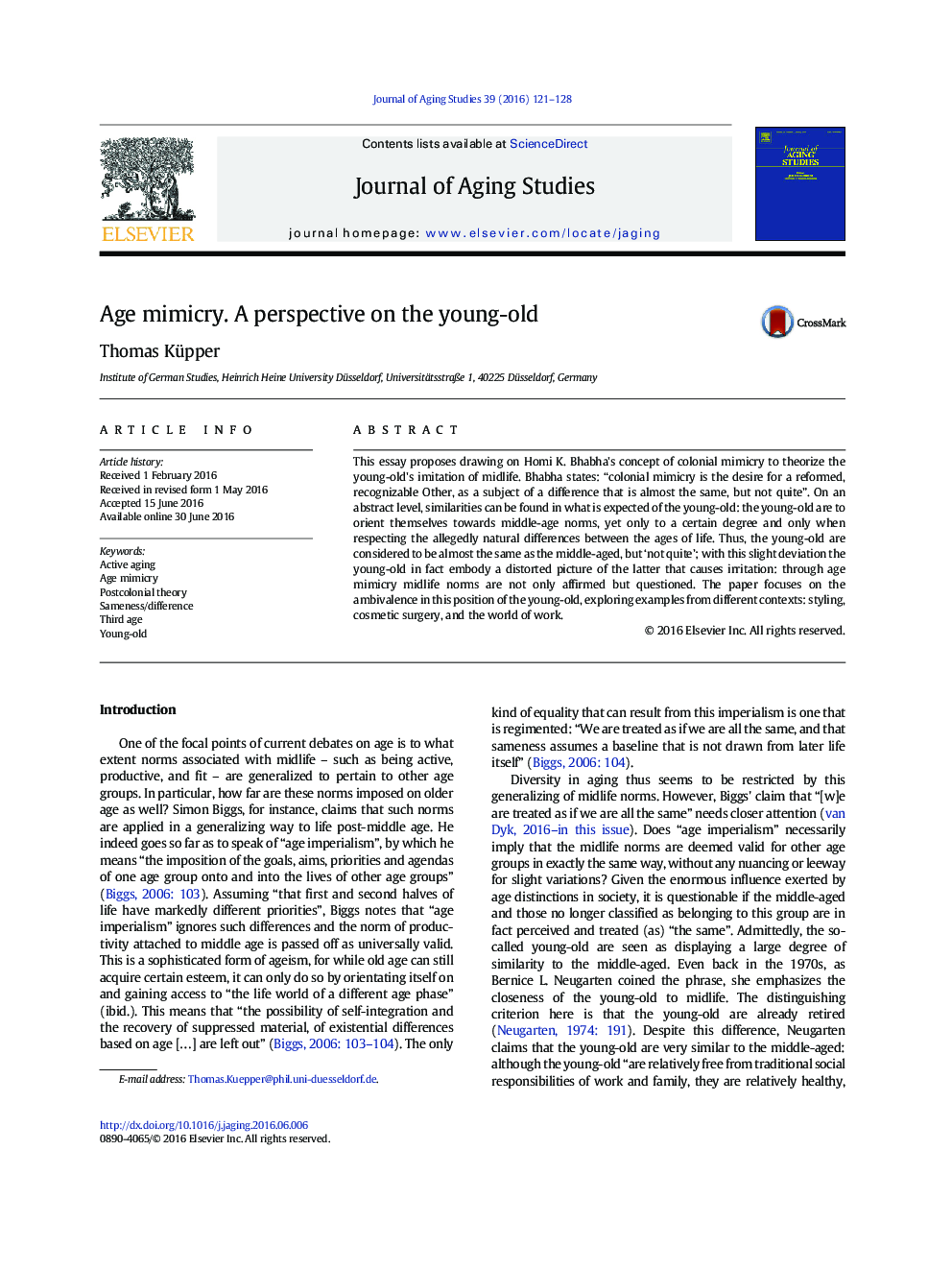| Article ID | Journal | Published Year | Pages | File Type |
|---|---|---|---|---|
| 5121657 | Journal of Aging Studies | 2016 | 8 Pages |
This essay proposes drawing on Homi K. Bhabha's concept of colonial mimicry to theorize the young-old's imitation of midlife. Bhabha states: “colonial mimicry is the desire for a reformed, recognizable Other, as a subject of a difference that is almost the same, but not quite”. On an abstract level, similarities can be found in what is expected of the young-old: the young-old are to orient themselves towards middle-age norms, yet only to a certain degree and only when respecting the allegedly natural differences between the ages of life. Thus, the young-old are considered to be almost the same as the middle-aged, but 'not quite'; with this slight deviation the young-old in fact embody a distorted picture of the latter that causes irritation: through age mimicry midlife norms are not only affirmed but questioned. The paper focuses on the ambivalence in this position of the young-old, exploring examples from different contexts: styling, cosmetic surgery, and the world of work.
